
Carpal tunnel is a channel located in the wrist at the palm side. It is actually a passageway formed by a ligament that provides roofing for the wrist bones.
Inside this passageway, the tendons used to move the fingers extend, and the median nerve, one of the three nerves of the hand is also located here. Too much pressure on the median nerve causes carpal tunnel syndrome.
This condition is fairly common, it affects three out of 100 men and 11 out of 100 women. Women tend to develop the condition more often, usually around the age of 45.
The main symptoms of carpal tunnel syndrome are tingling, numbness and burning in the hands and fingers. The sensation can sometimes go all the way up to the elbow and even to the shoulders and neck.
The symptoms tend to be worse at night or immediately upon waking up. Shaking the hand and moving the fingers may help temporarily with the symptoms but they usually come back during the day. The symptoms may be mild and only occur from time to time, but they can become continuous as the condition develops. It can become difficult to grasp objects or move the fingers, and in some cases the carpal tunnel syndrome can even lead to the degeneration of finger muscles or to permanent damage to the median nerve.
Any swelling around the median nerve can cause carpal tunnel syndrome. People who are overweight or use their hands a lot are more likely to get carpal tunnel syndrome. Rheumatoid arthritis or osteoarthritis in the wrist can cause this condition, and so can pregnancy, diabetes, thyroid problems and cysts inside the wrist. Oral contraceptives are said to be one of the possible causes of carpal tunnel syndrome.
If a patient reports symptoms of carpal tunnel syndrome, the doctor will perform a simple test by gently tapping the wrist while the hand is bent. If the symptoms occur during this test, the diagnosis will most likely be carpal tunnel syndrome. In case a general practitioner is not sure about the diagnosis, the patient will be advised to visit a neurologist for a nerve conduction test with electrodes.
Carpal tunnel syndrome sometimes goes away by itself. If the symptoms persist and become more frequent and severe, a treatment is required in order to prevent further damage to the median nerve. One possibility is self help, with ice bags, rest, stretching. Pharmaceutical treatment includes diuretics for the expulsion of excess water and corticosteroids, like prednisolone, which provide short-term relief but can have side effects if used over a long period of time. Some doctors suggest steroid injections directly into the carpal tunnel. This treatment may hurt for a first few days but the symptoms will lessen after that.
There has been some word of acupuncture and yoga being beneficial for carpal tunnel syndrome but this has not been proven scientifically. This goes for Vitamin B6 tablets as well.
Finally, there is surgery. This procedure involves cutting through the ligament in order to make more room for the tendons and nerves. It is done with a local anaesthetic and the patient is usually released from the clinic the same day.





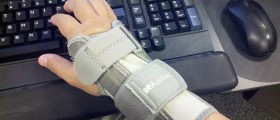


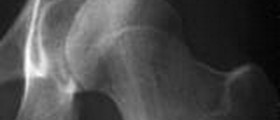


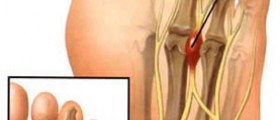


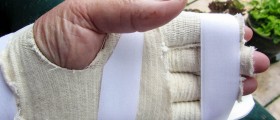
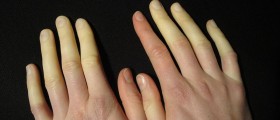
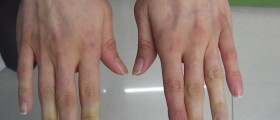
Your thoughts on this
Loading...